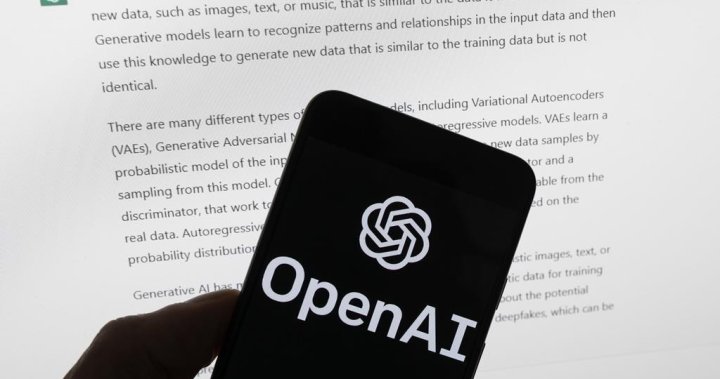As regulations concerning the utilization of artificial intelligence tools in elections evolve swiftly in the United States, Canadian lawmakers and election officials are proceeding cautiously, especially with three provinces gearing up for general elections.
In the U.S., political operatives are increasingly delving into the legitimate application of artificial intelligence to swiftly and effectively target and mobilize voters. Conversely, the adoption of AI tools in Canadian political campaigns seems to be at a nascent stage.
Steve Outhouse, the campaign manager for the New Brunswick Progressive Conservatives (PCNB), emphasized the emergent nature of AI in the electoral landscape. Despite employing a range of digital tools for voter identification, fundraising, and voter mobilization, Outhouse clarified that any voter outreach via phone calls by PCNB will involve human interaction.
Similarly, the New Brunswick Green Party affirmed its commitment to traditional voter contact methods involving human interaction, steering clear of AI intervention.
In contrast, U.S. campaign operatives are actively leveraging AI tools to craft scripts for human agents, generate multimedia content, and analyze voter data. Companies like Votivate LLC offer AI-powered solutions to non-incumbent Democrats and other campaigns aiming to level the playing field against better-funded opponents.
While the Canadian electoral arena has not witnessed such advanced AI applications, some digital campaign practitioners are integrating AI to expedite research and content creation processes. However, human oversight remains integral to ensure the quality and integrity of the final output.
Concerns about potential misuse of AI in elections have been amplified following incidents like the fake robocalls during the New Hampshire primaries. Legislative bodies in over three dozen U.S. states are contemplating or have enacted laws to regulate AI usage in campaigns. Notably, the U.S. Federal Communications Commission (FEC) swiftly banned the use of AI-generated robocalls post the New Hampshire incident.
In Canada, while the regulatory framework overseen by the Canadian Radio-television and Telecommunications Commission (CRTC) is deemed adequate to address AI-related misuse, discussions on updating legislation to address evolving technological challenges are underway.
As the political landscape braces for the impact of AI on elections, stakeholders are vigilant about safeguarding the electoral process from misinformation and manipulation. The emergence of AI-generated “deep fakes” poses a significant challenge, necessitating a critical assessment of information by voters and proactive measures by campaigns to counter false narratives.
In British Columbia, parties have voluntarily committed to ethical practices in campaign activities, including refraining from misrepresenting AI systems as human entities. Moreover, stringent regulations are in place to deter misrepresentation of candidates, underscoring the gravity of maintaining transparency in electoral communications.
Looking ahead, the Canadian government anticipates introducing amendments to the Canada Elections Act to enhance voter engagement and address the implications of AI on elections. Minister Dominic LeBlanc underscored the government’s vigilance in ensuring that AI technologies are deployed responsibly to uphold public trust in the electoral process.










